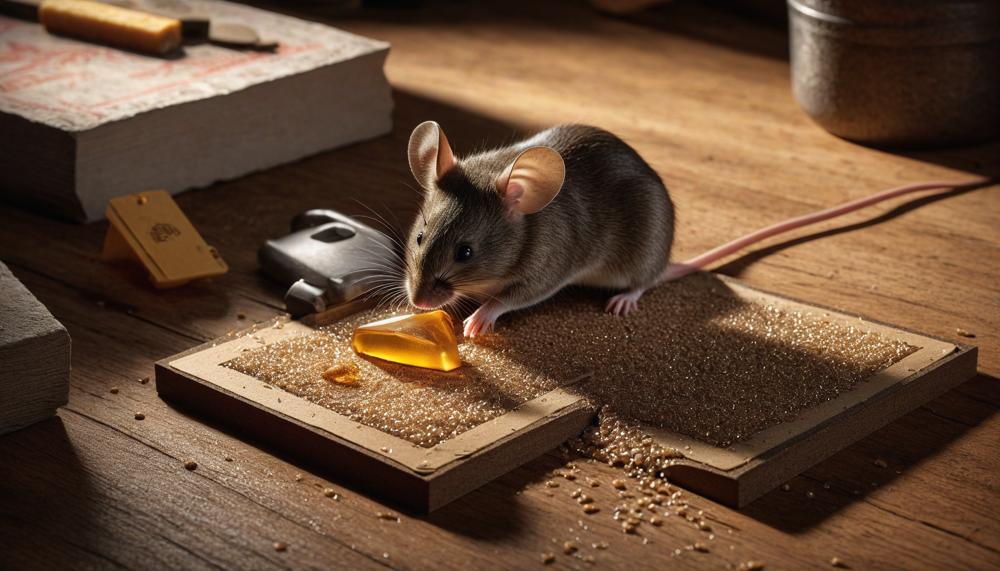The answer is both yes and no. While some regions, like New York, are actively debating the prohibition of these traps due to ethical and safety concerns, others continue to allow their use. Glue traps, designed to immobilize mice and other pests on a sticky surface, have faced criticism for being inhumane.
They can lead to prolonged suffering, often resulting in starvation or suffocation of the trapped animals. The debate over their use has sparked considerable discussion among lawmakers, animal rights activists, and the public.
Key takeaways:
- Health and Safety Risks: Glue traps can pose significant risks to humans and pets.
- Inhumane Treatment: Critics argue that these traps cause unnecessary and cruel suffering to animals.
- Legislative Actions: Some areas are considering bans, reflecting a shift toward more humane pest control methods.
- Ongoing Discussions: The proposed bans highlight the growing awareness and concern over ethical pest control practices.
This issue’s importance extends beyond just pest control, touching on broader themes of animal rights and human safety. As debates continue, the future of glue traps remains uncertain, urging us to consider more compassionate alternatives.
Table of Contents
Are Glue Mouse Traps Banned?
The controversy surrounding glue mouse traps stems from the ethical and safety concerns they raise. Critics argue that these traps cause unnecessary suffering to rodents. Once caught, animals often struggle desperately, leading to severe injuries or even death from starvation, dehydration, or stress. Additionally, glue traps pose health risks to humans and pets who might come into contact with them.
Advocates for the ban argue that there are more humane and effective alternatives for rodent control. Methods such as snap traps, electronic traps, or live traps are recommended as they are considered less cruel and more efficient in managing rodent populations without causing undue suffering.
Glue traps are currently banned or restricted in various locations:
| Location | Status | Details |
| New York | Proposed Ban | Lawmakers are considering a ban due to health and safety risks. |
| United Kingdom | Banned | The sale and use of glue traps are prohibited due to animal welfare concerns. |
| California | Restricted | Regulations limit their use to licensed pest control professionals. |
These restrictions highlight the growing recognition of the ethical issues and the push for more humane pest control methods.
Glue Trap Prohibition Act
| Legislation | Description | Impact |
| Glue Trap Prohibition Act | Introduced by Congressman Ted W. Lieu (D-Los Angeles County) to ban the possession and use of glue traps for catching rodents. | Aims to eliminate the use of inhumane rodent control methods. |
| Motivation | Inspired by successful efforts by Democrats for the Protection of Animals in banning glue traps in West Hollywood. | Shows grassroots movements can influence larger legislative actions. |
| Health Risks | The CDC advises against glue traps due to the risk of spreading diseases by ensnared rodents. | Public health safety is a significant concern alongside animal cruelty. |
| Ethical Concerns | Glue traps cause severe suffering, including skin tearing, limb gnawing, blood loss, suffocation, or dehydration. | Highlights the ethical argument against their use and promotes humane alternatives. |
Understanding the Issue
This page provides a detailed examination of the proposed legislation and the ethical and health considerations surrounding glue traps. By presenting the legislative efforts, motivations behind the ban, health risks, and ethical concerns, the page helps you grasp the multifaceted issues associated with glue traps.
This comprehensive overview not only informs you about the legislative measures but also emphasizes the importance of humane and safe pest control methods.
Services and information
For accurate and up-to-date information about the current status of glue mouse trap regulations, you can consult the following reliable sources:
| Source | Type of Information | Link |
| Government Websites | Official regulations, legal texts, updates on new laws and policies | UK Government |
| Animal Welfare Organizations | Ethical concerns, advocacy, guidelines on humane pest control | PETA |
| Pest Control Companies | Industry standards, best practices, compliance with current laws | Rentokil |
| Environmental Protection Agencies | Impact on wildlife and non-target species, environmental guidelines | US EPA |

These sources provide comprehensive information, ensuring you stay informed about the legal and ethical considerations of using glue traps.
Government activity
The current stance of governments on the use of glue mouse traps is increasingly critical, with legislative efforts and advisories leaning towards banning or restricting their use due to ethical and health concerns.
| Country | Stance | Details |
| United States | Mixed | While there is no national ban, Congressman Ted W. Lieu has introduced the Glue Trap Prohibition Act to ban the use and possession of glue traps. Several local jurisdictions, like West Hollywood, have already implemented bans. |
| United Kingdom | Banned | The UK has banned the use of glue traps due to their inhumane nature and potential health risks. |
| New Zealand | Banned | New Zealand has also prohibited glue traps, emphasizing animal welfare and ethical pest control practices. |
Reasons for Banning Glue Traps
- Cruelty: Glue traps are considered inhumane as they cause extreme suffering to trapped animals, leading to injuries such as skin tearing, limb gnawing, and dehydration.
- Health Concerns: The Centers for Disease Control and Prevention (CDC) advise against using glue traps due to the risk of disease transmission from trapped rodents.
- Support from Animal Welfare Organizations: Groups like the Humane Society Legislative Fund support the prohibition, highlighting that glue traps are outdated and inhumane.
Legislative Efforts
In the United States, the proposed Glue Trap Prohibition Act aims to eliminate the use of these traps. This movement is part of a broader push by animal welfare advocates, inspired by successful local bans and supported by organizations dedicated to animal protection.
Conclusion
The debate over glue mouse traps is a complex issue reflecting broader concerns about animal welfare and human safety. These traps, designed to ensnare rodents on an adhesive surface, have garnered criticism for their inhumane nature. Trapped animals often endure prolonged suffering, leading to starvation or suffocation. This cruelty has ignited significant opposition from animal rights groups and has led some regions to contemplate bans or restrictions on their use.
Health and safety risks further complicate the use of glue traps. They pose dangers not only to pets and non-target wildlife but also to humans who might accidentally come into contact with them. These risks have prompted legislative actions in several areas, with places like New York actively debating bans. Other regions, including the United Kingdom, have already implemented strict prohibitions, reflecting a societal shift towards more ethical pest control solutions.
This ongoing discussion underscores a growing awareness of and demand for humane treatment of animals, even in pest control. As the debate continues, it becomes increasingly evident that the future of glue traps is uncertain.






